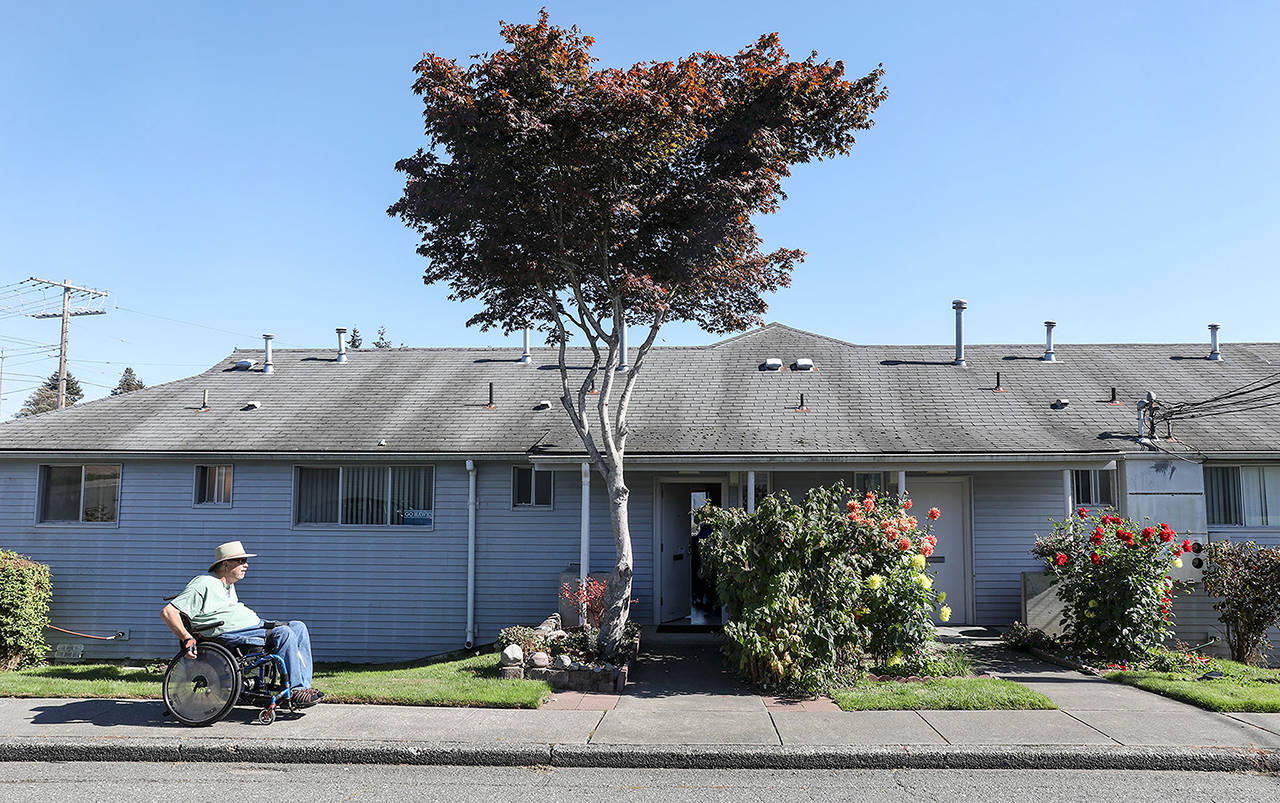EVERETT — As Baker Heights nears demolition, the Everett Housing Authority has vowed to replace all 244 low-income units being lost.
But rather than concentrating the subsidized dwellings back on that one site, the Housing Authority plans to create mixed-income communities throughout the city that will serve a range of households.
“Neighborhoods with high concentrations of poverty are just not as healthy as other communities,” said Ashley Lommers-Johnson, the Housing Authority’s executive director.
Baker Heights, a public housing complex in northeast Everett that dates back to the World War II era, has been slated for demolition for years. Once the former military barracks are destroyed, up to 200 mixed-income units will go back on the property.
Of those, 60 to 80 will be subsidized serving mostly homeless families with children in the Everett School District. These households’ rent will be equal to 30 percent of their income, and a housing voucher will make up the difference.
The other units, up to 140, will be for households making 80 percent or less than the area’s median income, creating a mixed-income community. Rents for these dwellings would be mostly below market rate.
In the past, public housing was concentrated in the poorest community and that had an impact, Lommers-Johnson said.
Research has shown that place matters. Moving kids from a low-income community to an area with more opportunities can improve outcomes in adulthood, he said.
The Housing Authority isn’t abandoning the Delta Neighborhood, Lommers-Johnson said, pointing to the millions of dollars the organization has spent revitalizing its properties in that area.
The Delta Neighborhood Association has been a vocal critic of the disproportionate amount of low-income housing that exists in that area.
The rest of the replacement units will be acquired by buying existing multifamily buildings throughout the city. These also will be mixed-income complexes that will contain a combination of subsidized units and affordable housing units.
“There’s a need for housing across the spectrum,” Lommers-Johnson said.
Many of the resources go to extremely low-income households that qualify for subsidized housing, he said. The mixed-income buildings will help fill a gap, serving families unable to find affordable housing on the private market.
Last week, the Housing Authority received the final installment of vouchers that are being used to move displaced Baker Heights tenants. A total of 244 vouchers have been allocated by the U.S. Department of Housing and Urban Development.
Since relocation began in Oct. 2017, 155 Baker Heights households have been moved.
A majority, 64 percent, found replacement housing in Everett, while 10 percent went to Marysville, according to data provided by the Everett Housing Authority. Another 4 percent of families moved to King County. Two moved out of state, with one relocating as far as Minnesota.
Sixty percent ended up leaving the Delta Neighborhood, heading to other areas including the Holly and Port Gardner neighborhoods.
The Everett Housing Authority is on track to have all the remaining households moved by the beginning of October 2019, Lommers-Johnson said.
The earliest the Housing Authority will break ground on the new units at Baker Heights is the beginning of 2020. In October the board of the Housing Authority approved selling leftover land, roughly 10 acres, not used for the future Baker Heights complex to Washington State University.
Lizz Giordano: 425-374-4165; egiordano@heraldnet.com; Twitter: @lizzgior.
Talk to us
> Give us your news tips.
> Send us a letter to the editor.
> More Herald contact information.

























